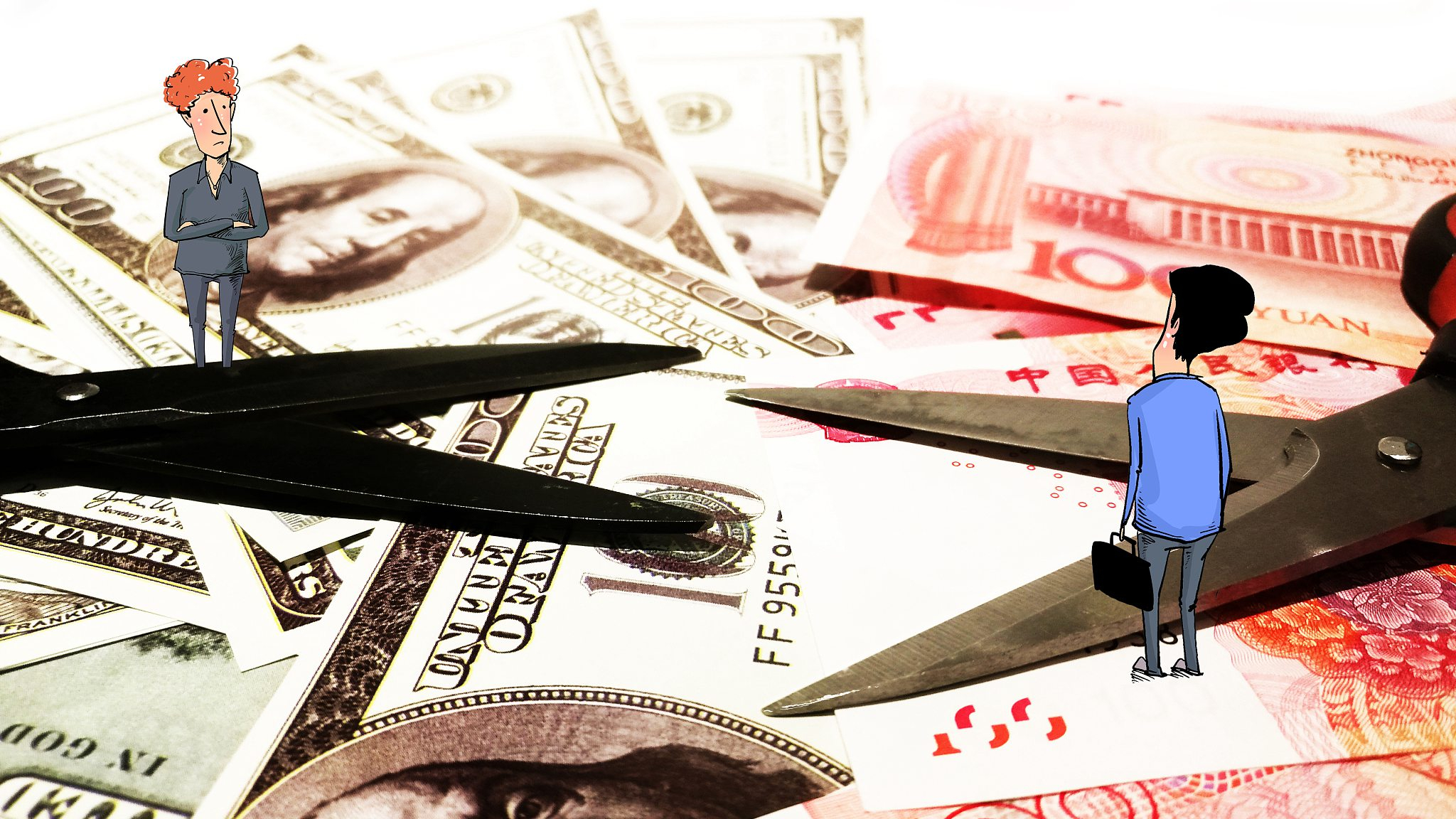
(Photo: CGTN)
The last few weeks have witnessed two momentous events in world trade.
The first has been the US government's move to impose further tariffs on Chinese goods amounting to date to around 250 billion US dollars.
The second is Canada's agreement to join a "renegotiated" North American Free Trade Treaty, to be renamed the USMCA (United States-Mexico-Canada Agreement). Both are connected in important ways and mark a further regression in the increasingly fragile international multilateral rules-based-order.
The US tariffs on China are aimed at rebalancing trade between two of the world's largest economies and addressing alleged currency manipulation of the yuan by China to make Chinese goods cheaper and protect intellectual property. China has countered by drawing up its own list of US products to be targeted with retaliatory tariffs.
Some economists point out that the impositions of tariffs on Chinese products are likely to hurt American companies and consumers. These unilateral actions heighten global tensions at a time when pressing global issues require dialogue and negotiation rather than brinkmanship.
The "renegotiated" USMCA between the United States, Mexico and Canada – commentators generally point out this was less a negotiation than extortion through modern economic gun-boat diplomacy – is significant for three reasons.
First, in the renegotiated agreement, one clause in particular goes beyond the normal compromises made in free trade agreements, toward what might be found in a customs union.
Second, it signifies a further shift in the "America First" doctrine toward a purely transactional approach to global affairs, one that is not so much guided by common values or principles between allies as it is by a neo-mercantilist worldview underpinned by naked self-interest.
Through the trade negotiations with Canada, the US president, and by extension, part of the US government, launched personal attacks on the Canadian prime minister and minister of foreign affairs and threatened the "ruination" of the Canadian economy.
Third, by binding Canada and Mexico to US foreign and trade policy in the way that it has, it moves the world away from a multilateral system underpinned by a rules-based order, and facilitates what political scientist Joseph Nye has referred to as "soft" power, to one underpinned by a principle of might-is-right, where the ability of a nation to impose its sovereign will on that of another through "hard" power – either economic or military – is the modus operandi.
Today people are healthier, they are living longer, and they are more prosperous than at perhaps any time in human history. The liberal, multilateral, rules-based global order is chiefly responsible. But there are challenges that are both caused by this international system, and paradoxically, can likely only be solved by it.
One pressing challenge is that the benefits of such global prosperity are not being shared broadly enough. Wealth is concentrating in too few hands, and too many people are either not benefiting enough, or they perceive themselves not to be beneficiaries of recent progress.
Inequality in wealth distribution is one of the main reasons for the troubling rise of popularism and protectionism in India, the United States, the United Kingdom and Europe. China too will not be immune indefinitely, although it might manifest itself in different ways.
The benefits of globalization have to be distributed more widely by nations working together through international institutions.
Creating a more equally prosperous world, and one that doesn't compromise the natural systems that every person, nation and region depend on are within humanity's grasp.
But it requires a new commitment to the liberal, multi-lateral, rules-based order that has presided over impressive progress in so many of humanity's modern endeavors.
The escalation of economic and, increasingly, military tension between China and the United States, the two most important nations for the next phase of global development, is therefore folly.
China and the United States need to move toward ending this current trade dispute through compromise and dialogue, to put their differences behind them, and to work together to resolve critical issues that go far beyond trade for the benefit and future of humanity.


